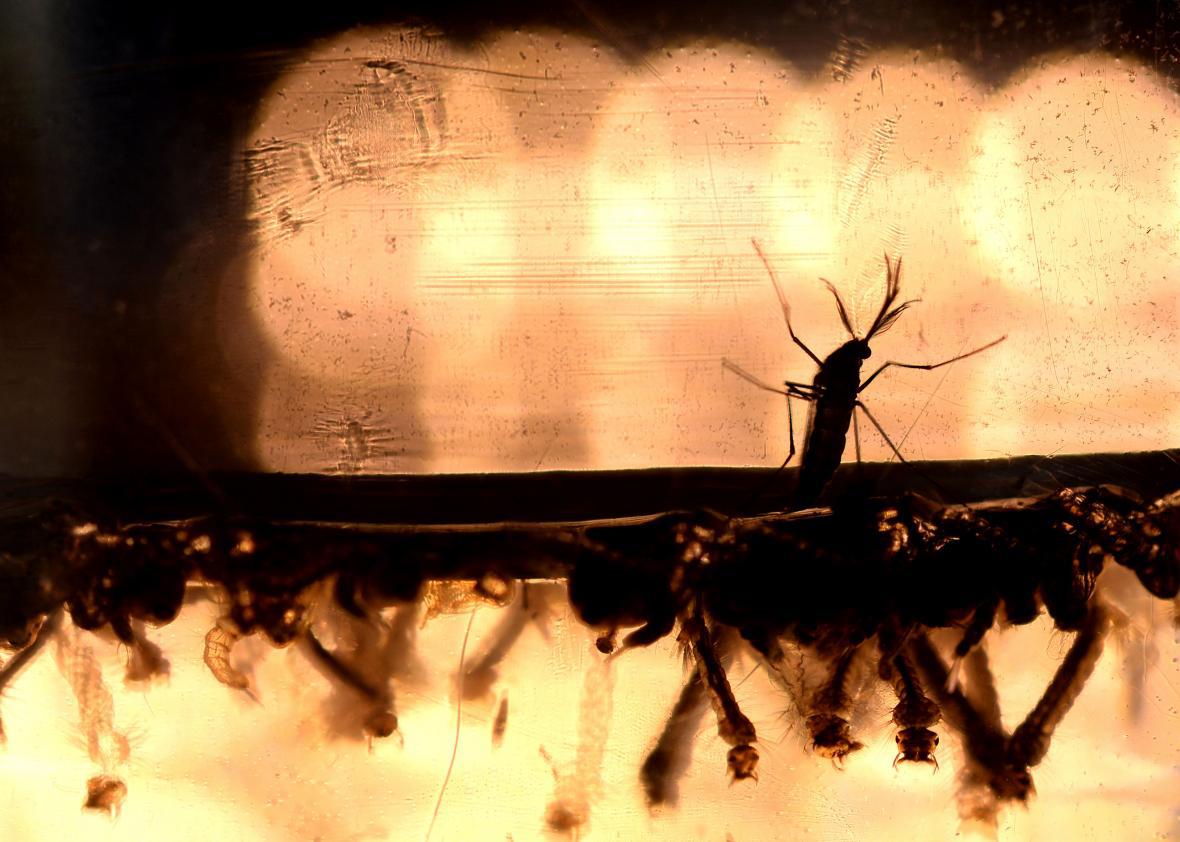Though mosquitoes haven’t yet carried the Zika virus to the U.S. mainland, communities in areas that could be affected by a future outbreak are already taking precautions. For pregnant women or women who are trying to get pregnant, the specter of a virus known to cause birth defects is cause for worry or an abrupt change in plans.
In Houston, where the first Zika-carrying mosquitoes will likely hit the U.S. via the Gulf Coast, women who’d planned to start fertility treatments are putting them off if they or their partners have made a recent visit to Central or South America, NPR reports. The city is home to a large number of people who work in the oil industry in jobs that require regular trips to offshore drilling sites in places like Puerto Rico, where 570 people, including 48 pregnant women, have contracted the disease. A Houston fertility doctor told NPR that Zika is the first thing he mentions when people come in wanting to get pregnant.
Doctors along the Gulf Coast are recommending that women who are already pregnant take special precautions to avoid getting bitten by potentially dangerous mosquitoes, just in case some of them are carrying the virus and haven’t yet passed it on to humans in the area. Pregnant women have often avoided using bug sprays containing DEET, due to a lack of information on its safety for fetuses in their first trimester, when most birth defects arise.
But the serious danger we know—Zika-induced microcephaly—is a greater reason for concern than the hypothetical risks of DEET, doctors say. A 2001 study of pregnant women who used DEET daily in their second and third trimesters found that, while DEET can permeate the placenta, it only showed up in the umbilical-cord blood of 8 percent of the newborns, who did not exhibit any signs of abnormal development. An Environmental Protection Agency official told the New York Times that DEET is safe “for pregnant women at any stage,” a position informed by studies of DEET used on pregnant animals.
But insect repellant isn’t enough to protect against Zika-related birth defects, because pregnant women can transmit the disease to a fetus without ever getting bitten: The first proven U.S. case of sexually transmitted Zika cropped up in Dallas earlier this year. Doctors advise men who have a pregnant partner and who have taken a recent trip to a Zika-affected area to wear condoms or abstain from sex for eight weeks, even if they have no symptoms. Since the virus shows up in semen long after it becomes undetectable in the bloodstream, if a man with a pregnant partner does show signs of Zika, he should wear condoms or abstain from sex for six months. Pope Francis himself has loosened the Catholic Church’s customary chokehold on contraception to endorse condom use in these cases.
Even if pregnant women and their partners do exactly as they’re told, they might want extra assurance of their fetus’s normal development, especially since there’s little data about when a Zika-infected woman can pass the infection on to her fetus. For that reason, Houston doctors have established one clinic, and are planning another, for the purpose of testing and counseling women who’ve recently traveled to Zika-afflicted regions. There’s no straightforward method for testing for microcephaly, but doctors at the Houston clinic have come up with a process to check for normal brain and head development in a 15-week ultrasound.
Will pregnant women and their families panic if and when Zika-bearing mosquitoes reach the Texas shores? Of course—the implications of a fetus exposed to Zika are severe and would be frightening to any soon-to-be parent. Is this inevitable panic rational, though? On one hand, Houston could see an amped-up population of mosquitoes this season, thanks to the standing water left by the historic flooding the city saw earlier this month. Peter Hotez, dean of Baylor’s tropical medicine school, told the Christian Post of one of the two types of mosquitoes known to spread Zika, “This is Aedes aegypti heaven right here.”
But things like window screens, air conditioning, and a tendency to spend more hours indoors put most U.S. households at a lower risk of Zika infection than most of the hardest-hit communities in Latin America. Fewer humans to bite means fewer mosquitoes flying Zika around the Gulf Coast. The odds of a Zika crisis the likes of Brazil’s coming to pass in the U.S. are extraordinarily slim. That still may not be much comfort to the pregnant and concerned or to those who’ve postponed a much-desired pregnancy to prepare for the worst.
